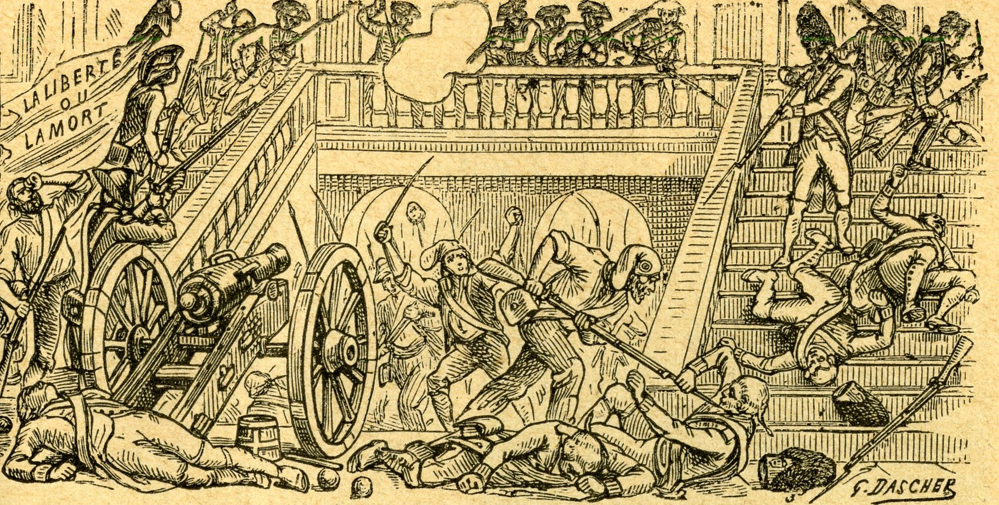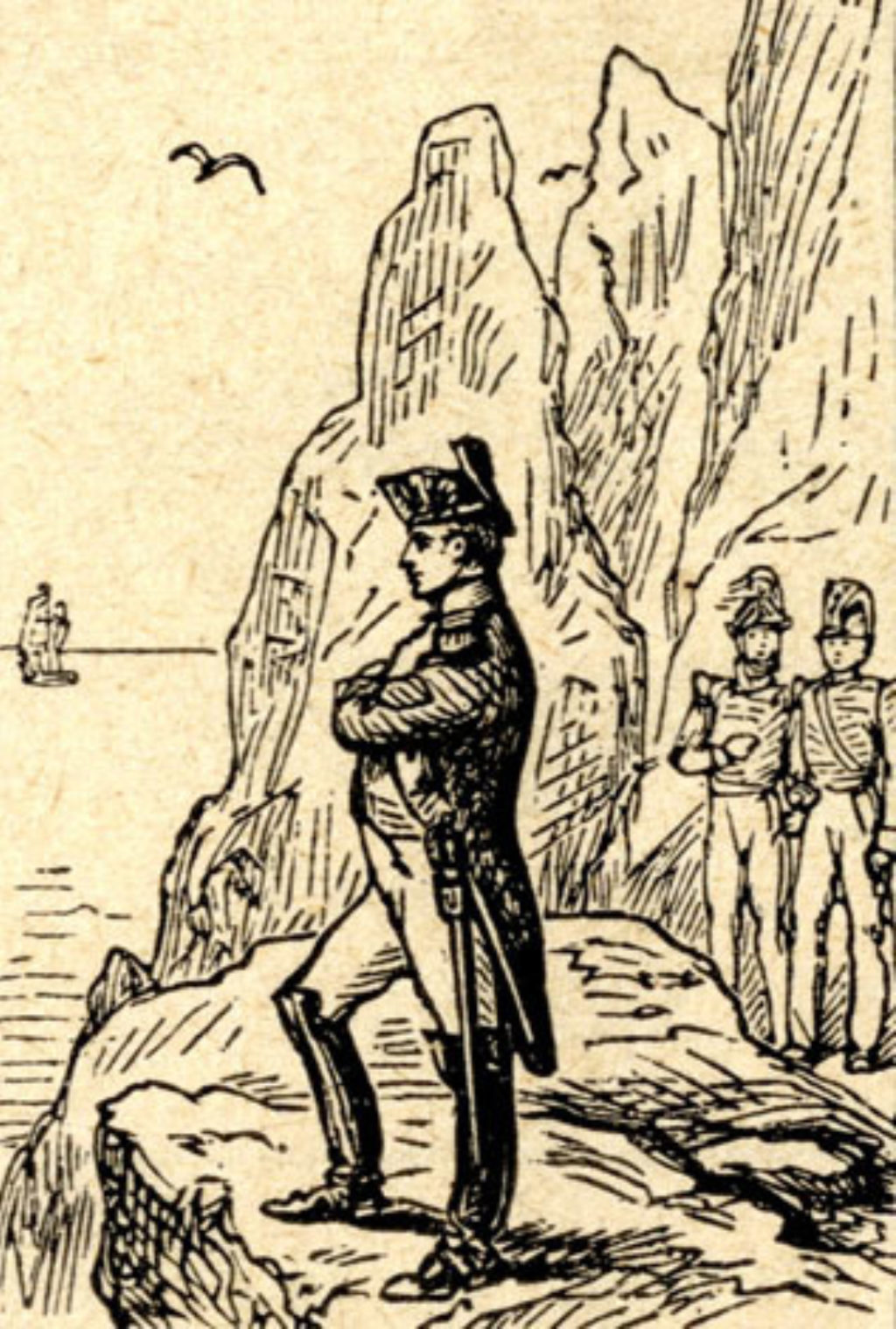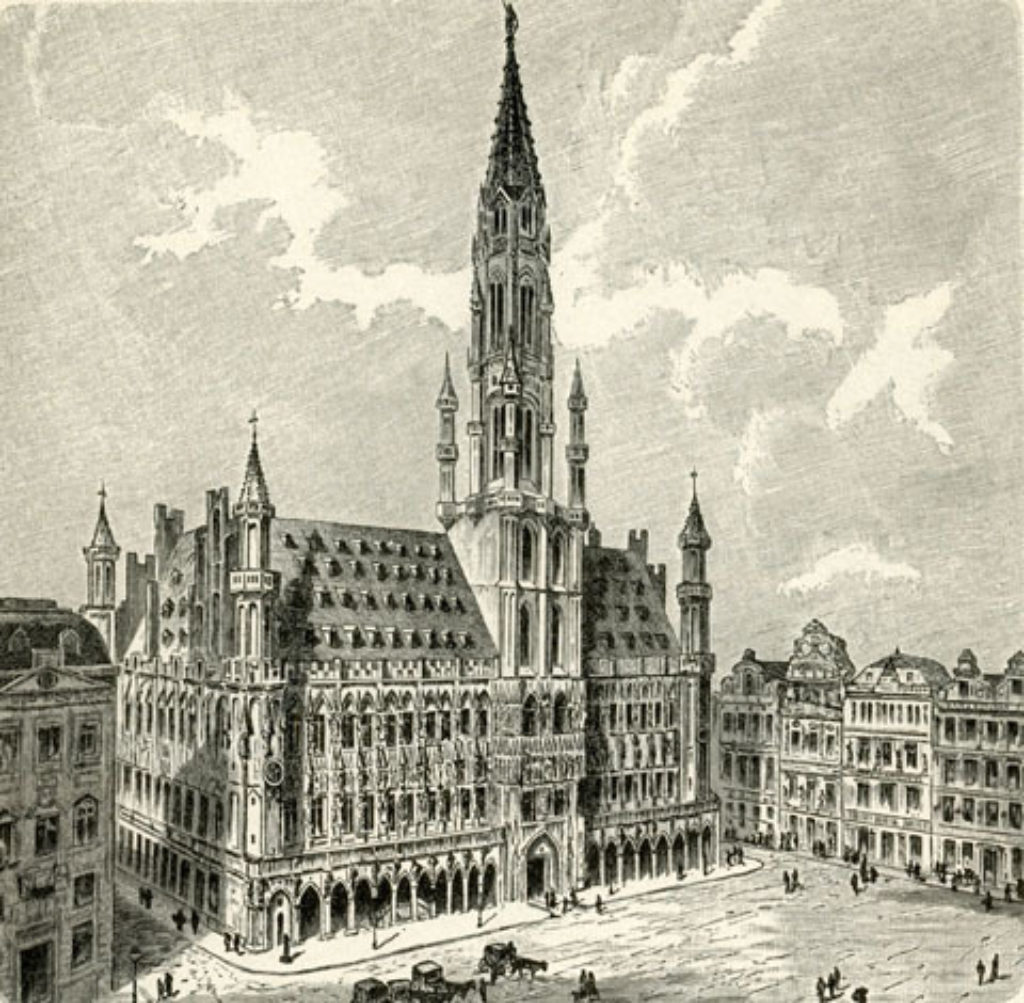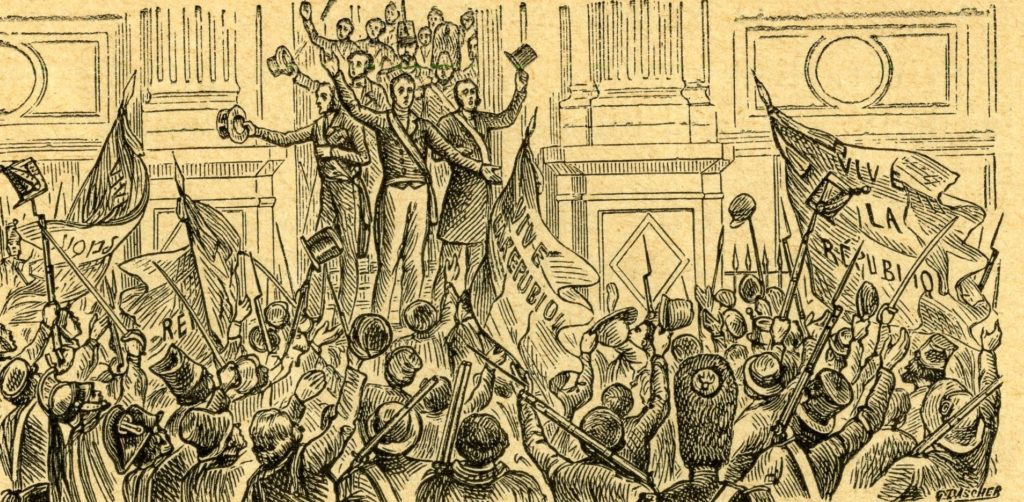FROM VIENNA TO PARIS: EUROPE IN THE AGE OF REVOLUTION (1815-1848)
The Principle of Nationalities
The French Revolution was the first step in challenging the old established order, introducing new approaches and ideas which swiftly spread across the whole European continent. Factors such as the upsetting of earlier balances in the Napoleonic Wars, the reaction to French conquest, and disappointment at the abandonment of the principles of the Revolution led to a search for new constants, an alternative to fill the gap created by the fall of the old world and the failure to establish the new. Against this background, in the early 19th century the principle of nation-states arose: the belief that each state should be identified with a single nation, a group of people sharing common origins, traditions and interests. The dissemination and predominance of this principle in the following years, in the form given it by various movements such as Romanticism, was to form the basis of most the revolutions of the 19th century and the establishment of many modern states.

In Search of Stability: The Holy Alliance
Even before the end of the Napoleonic Wars, Britain, Prussia, Austria and Russia were already planning to form a single, long-term alliance. Its aim would be to restore and preserve the previous balances, and to deter any action that might cast doubt on the established order, particularly the role and status of the royal houses. Any conflict that might trigger new movements must be avoided at all costs, and any revolutionary action must be quashed. In the following years, military interventions were undertaken against the liberal uprisings that took place in the German states (1819-20), Naples and Piedmont (1820-21), and Spain (1822). However, conflicts of interest soon emerged among the members of the Alliance. First the Greek Revolution (1821) and then the Belgian Revolution (1830) weakened the original agreement and led to the gradual abandonment of the framework that the Congress of Vienna had attempted to establish.
The First Revolutions
The First Revolutions
Despite the efforts of the Holy Alliance, the first half of the 19th century was a time of risings and revolutions around the world, mainly in regions outside the main European territories, such as Latin America and the Ottoman Empire. However, the landmark event that shook the framework established by the Congress of Vienna was the July Revolution. The insistence of the Bourbon monarch Charles X on the restoration of the old order led in July 1830 to the outbreak of the revolution, the deposition of the king and the establishment of a stronger constitutional monarchy. This event triggered the secession of Belgium from the United Kingdom of the Netherlands in August of the same year. In this case, the differing aims of the members of the Alliance permitted the creation of a new state. When, on the other hand, Poland took the same path in early 1831, Russia quashed the uprising, confirming, together with Prussia and Austria, that they intended to continue their efforts to preserve the status quo.
The "Springtime of the Peoples": The Revolutions of 1848
The hopes for the realisation of liberal and national objectives, in conjunction with an economic crisis unprecedented in Europe – originally an agrarian crisis, which came to affect every level of the economy – formed the basis of the revolutions that broke out in early 1848. Once again, the spark was provided by France, where the main conflict now centred on attempts to adopt a socialist policy. Events in France were followed by liberal uprisings in Austria, where, besides political concessions, the main calls were for the independence of certain nations of the Empire. Austria’s weakness led to uprisings in both Italy and the German states, this time with the opposite aim: unification into a single state. However, the many contradictions, lack of cohesion, and hesitation gave Austria the opportunity to counterattack: along with Russia and Prussia, it managed to quash the revolutions for one last time.



